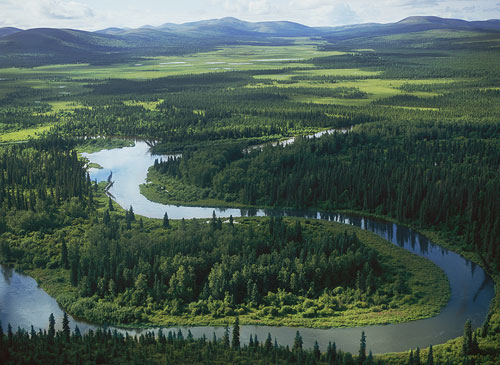 Nearly 250 landowners in the Southern Tier are suing to stop a large gas company from indefinitely extending leases that landowners want to end.
Nearly 250 landowners in the Southern Tier are suing to stop a large gas company from indefinitely extending leases that landowners want to end.
While no Central New York landowners are involved in the suits, hundreds of local people received the same lease-extension notices from Chesapeake as those being challenged in the Southern Tier suits.
About 40 local residents plan to board a bus early this morning to attend a large rally in Albany to stop the controversial drilling technique known as fracking. The rally comes just two weeks after a hydrofracking well blew out in Bradford, Pa., sending thousands of gallons of tainted water into a nearby creek. A spokesman for the Independent Oil and Gas Association of New York said drilling companies work hard to prevent accidents, but that some are inevitable.

 Environmental Glance
Environmental Glance How clean is your air? Most U.S. cities with the dirtiest air are getting cleaner but half of Americans still live in in areas where it's often difficult to breathe, the American Lung Association reports today.
How clean is your air? Most U.S. cities with the dirtiest air are getting cleaner but half of Americans still live in in areas where it's often difficult to breathe, the American Lung Association reports today. How climate science became the target of "the best-funded, best-organized smear campaign by the wealthiest industry that the Earth has ever known."
How climate science became the target of "the best-funded, best-organized smear campaign by the wealthiest industry that the Earth has ever known." The Antarctic ozone hole is about one-third to blame for Australia's recent series of droughts, scientists say. Writing in the journal Science, they conclude that the hole has shifted wind and rainfall patterns right across the Southern Hemisphere, even the tropics.
The Antarctic ozone hole is about one-third to blame for Australia's recent series of droughts, scientists say. Writing in the journal Science, they conclude that the hole has shifted wind and rainfall patterns right across the Southern Hemisphere, even the tropics. Earth Day activists rallied on Main Street to protest against the practice of fracking in natural gas drilling in Pennsylvania, though others were completely opposed to any drilling in Marcellus Shale regions of the state.
Earth Day activists rallied on Main Street to protest against the practice of fracking in natural gas drilling in Pennsylvania, though others were completely opposed to any drilling in Marcellus Shale regions of the state. Near my home in Utah, Rio Tinto's massive Bingham Canyon Mine is one of the biggest man-made excavations on Earth and has rendered a large area of local groundwater too polluted for human consumption.
Near my home in Utah, Rio Tinto's massive Bingham Canyon Mine is one of the biggest man-made excavations on Earth and has rendered a large area of local groundwater too polluted for human consumption. "The reactors at Fukushima are the largest in the world, and six of them are in total meltdown. They have been melting down since thirty-minutes after the Tsunami' because the cooling systems went off when the earthquake happened and 90 minutes after the cooling stopped-the reactors went into meltdown. This is all a cover-up, this is a false-flag, this is a poisoning of the oceans the atmosphere and the biosphere. No one can escape."
"The reactors at Fukushima are the largest in the world, and six of them are in total meltdown. They have been melting down since thirty-minutes after the Tsunami' because the cooling systems went off when the earthquake happened and 90 minutes after the cooling stopped-the reactors went into meltdown. This is all a cover-up, this is a false-flag, this is a poisoning of the oceans the atmosphere and the biosphere. No one can escape."






























